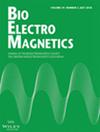求助PDF
{"title":"Hypomagnetic Field Exposure Affecting Gut Microbiota, Reactive Oxygen Species Levels, and Colonic Cell Proliferation in Mice","authors":"Aisheng Zhan, Yukai Luo, Huafeng Qin, Wei Lin, Lanxiang Tian","doi":"10.1002/bem.22427","DOIUrl":null,"url":null,"abstract":"<p>The gut microbiota has been considered one of the key factors in host health, which is influenced by many environmental factors. The geomagnetic field (GMF) represents one of the important environmental conditions for living organisms. Previous studies have shown that the elimination of GMF, the so-called hypomagnetic field (HMF), could affect the physiological functions and resistance to antibiotics of some microorganisms. However, whether long-term HMF exposure could alter the gut microbiota to some extent in mammals remains unclear. Here, we investigated the effects of long-term (8- and 12-week) HMF exposure on the gut microbiota in C57BL/6J mice. Our results clearly showed that 8-week HMF significantly affected the diversity and function of the mouse gut microbiota. Compared with the GMF group, the concentrations of short-chain fatty acids tended to decrease in the HMF group. Immunofluorescence analysis showed that HMF promoted colonic cell proliferation, concomitant with an increased level of reactive oxygen species (ROS). To our knowledge, this is the first <i>in vivo</i> finding that long-term HMF exposure could affect the mouse gut microbiota, ROS levels, and colonic cell proliferation in the colon. Moreover, the changes in gut microbiota can be restored by returning mice to the GMF environment, thus the possible harm to the microbiota caused by HMF exposure can be alleviated. © 2022 Bioelectromagnetics Society.</p>","PeriodicalId":8956,"journal":{"name":"Bioelectromagnetics","volume":"43 8","pages":"462-475"},"PeriodicalIF":1.2000,"publicationDate":"2022-11-26","publicationTypes":"Journal Article","fieldsOfStudy":null,"isOpenAccess":false,"openAccessPdf":"","citationCount":"1","resultStr":null,"platform":"Semanticscholar","paperid":null,"PeriodicalName":"Bioelectromagnetics","FirstCategoryId":"99","ListUrlMain":"https://onlinelibrary.wiley.com/doi/10.1002/bem.22427","RegionNum":3,"RegionCategory":"生物学","ArticlePicture":[],"TitleCN":null,"AbstractTextCN":null,"PMCID":null,"EPubDate":"","PubModel":"","JCR":"Q3","JCRName":"BIOLOGY","Score":null,"Total":0}
引用次数: 1
引用
批量引用
Abstract
The gut microbiota has been considered one of the key factors in host health, which is influenced by many environmental factors. The geomagnetic field (GMF) represents one of the important environmental conditions for living organisms. Previous studies have shown that the elimination of GMF, the so-called hypomagnetic field (HMF), could affect the physiological functions and resistance to antibiotics of some microorganisms. However, whether long-term HMF exposure could alter the gut microbiota to some extent in mammals remains unclear. Here, we investigated the effects of long-term (8- and 12-week) HMF exposure on the gut microbiota in C57BL/6J mice. Our results clearly showed that 8-week HMF significantly affected the diversity and function of the mouse gut microbiota. Compared with the GMF group, the concentrations of short-chain fatty acids tended to decrease in the HMF group. Immunofluorescence analysis showed that HMF promoted colonic cell proliferation, concomitant with an increased level of reactive oxygen species (ROS). To our knowledge, this is the first in vivo finding that long-term HMF exposure could affect the mouse gut microbiota, ROS levels, and colonic cell proliferation in the colon. Moreover, the changes in gut microbiota can be restored by returning mice to the GMF environment, thus the possible harm to the microbiota caused by HMF exposure can be alleviated. © 2022 Bioelectromagnetics Society.
低磁场暴露对小鼠肠道微生物群、活性氧水平和结肠细胞增殖的影响
肠道菌群被认为是影响宿主健康的关键因素之一,受多种环境因素的影响。地磁场是生物生存的重要环境条件之一。先前的研究表明,消除转基因食品,即所谓的低磁场(HMF),可能会影响某些微生物的生理功能和对抗生素的耐药性。然而,长期接触HMF是否会在一定程度上改变哺乳动物的肠道微生物群仍不清楚。在这里,我们研究了长期(8周和12周)暴露HMF对C57BL/6J小鼠肠道微生物群的影响。我们的结果清楚地表明,8周的HMF显著影响了小鼠肠道微生物群的多样性和功能。与GMF组相比,HMF组短链脂肪酸浓度有降低的趋势。免疫荧光分析显示,HMF促进结肠细胞增殖,并伴有活性氧(ROS)水平升高。据我们所知,这是首次在体内发现长期暴露于HMF会影响小鼠肠道微生物群、ROS水平和结肠细胞增殖。此外,将小鼠送回转基因食品环境可以恢复肠道微生物群的变化,从而减轻HMF暴露对微生物群可能造成的伤害。©2022生物电磁学学会。
本文章由计算机程序翻译,如有差异,请以英文原文为准。


